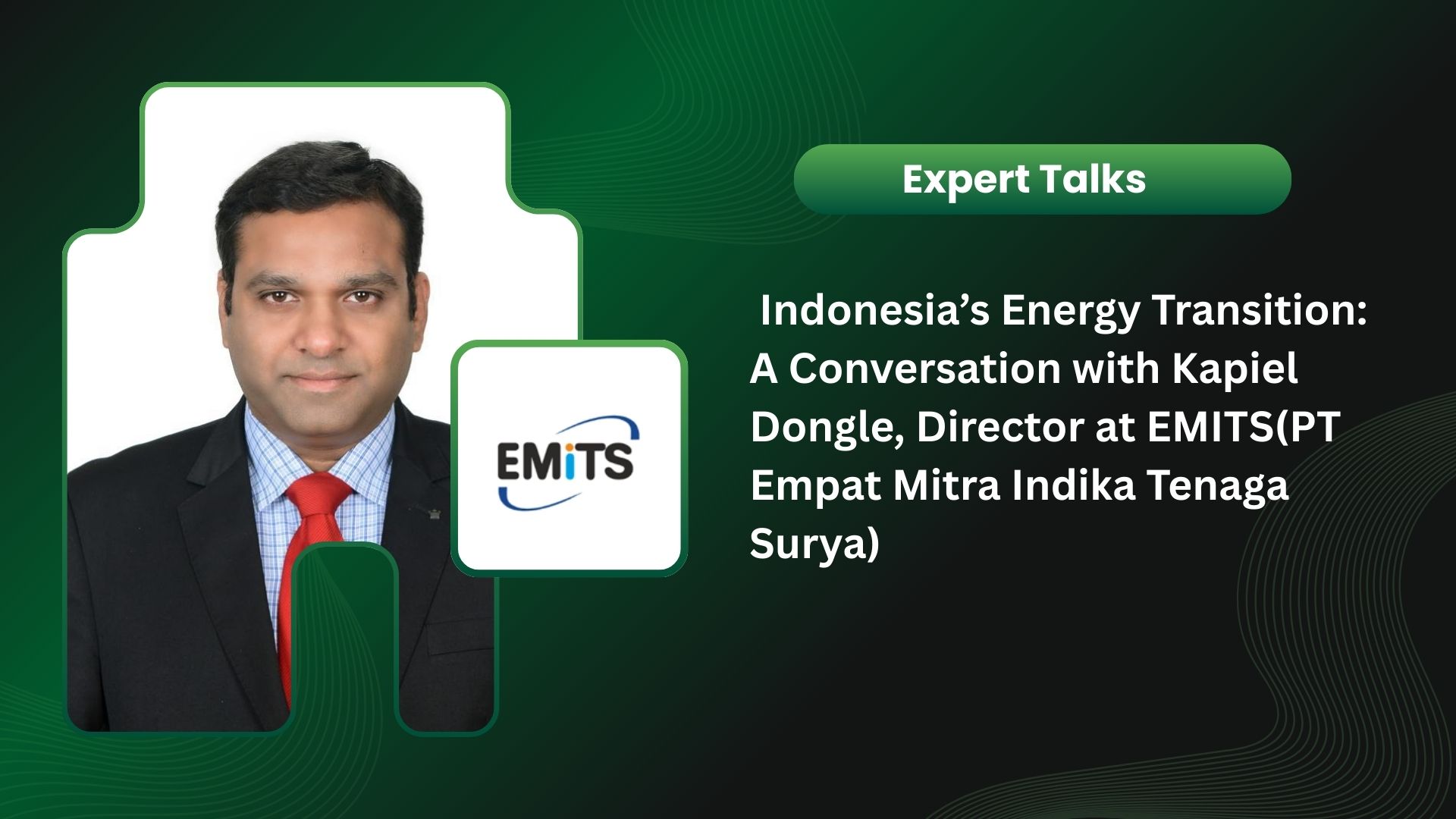As Indonesia accelerates its push toward renewable energy, EMITS is emerging as a frontrunner in delivering scalable, hybrid solar solutions across the archipelago. In this exclusive conversation, The Leap speaks with Kapiel Dongle, Director of EMITS, about the company’s journey, innovations, and the role it is playing in shaping a cleaner, more inclusive energy future.
The Leap: Could you elaborate on EMITS's vision and mission in Indonesia's renewable energy landscape?
Kapiel Dongle:
Our vision is clear: Powering Indonesia’s Clean Energy Future. We aim to be the country's top green energy solutions company and partner of choice, supporting the national energy transition.
Our mission is to:
- Accelerate sustainable decarbonization,
- Provide innovative, customized energy solutions,
- Develop best-in-class talent,
- Embrace diversity and act with integrity,
- And create exceptional value for all stakeholders.
In terms of our role, EMITS is deeply aligned with Indonesia’s National Energy Policy (RUEN) and PLN’s Electricity Business Plan (RUPTL). We deliver scalable and hybrid solar solutions that address both carbon reduction goals and real-world energy access challenges.
The Leap: What is EMITS’s value proposition to its customers?
Kapiel Dongle:
We offer a zero-investment model for corporate clients. EMITS sets up solar power plants on rooftops under a long-term lease, providing solar energy at a discount to PLN grid tariffs. Customers only need to sign a lease — we handle everything else: installation, operations, maintenance, and optimization.
This model allows clients to:
- Access clean energy with no upfront capital,
- Reduce electricity bills from day one,
- Make real progress on ESG and sustainability goals.
The Leap: EMITS celebrated its 4th anniversary this year. How has the journey been so far?
Kapiel Dongle
The last four years have been about growth, leadership, challenges, and measurable impact. We’ve built a strong value proposition and execution engine, earning the trust of customers across industries — from cement and textiles to malls and rice mills — in nearly every major Indonesian island.
We’re on track to cross 100 MWp installed capacity by end-2025, with a 200+ MWp order pipeline, particularly strong in Eastern Indonesia. To give perspective: 100 MWp of solar can cut about 104,700 tons of CO₂ annually.
The Leap: EMITS has raised over Rp 1,000 billion in debt capital. How is that being used?
Kapiel Dongle:
We’ve raised over Rp 1 trillion in two rounds, which is being strategically invested in solar and hybrid energy projects. This capital is crucial to scaling our footprint and deepening our presence in Indonesia’s renewable sector.
The Leap: EMITS is known for hybrid energy solutions. What are the benefits and challenges of these systems?
Kapiel Dongle:
Hybrid systems - combining solar PV + batteries + diesel generators — are game-changers for remote and off-grid regions. For example, we recently delivered one of Southeast Asia’s largest onsite hybrid systems: 10.1 MWp of solar with 6.8 MWh of battery storage for a remote manufacturing unit.
Benefits:
- Major diesel cost savings,
- Reliable energy in island areas,
- Modular deployment,
- Smarter load management.
Challenges:
- Integration complexity between different energy sources,
- Maintenance logistics in remote areas,
- Need for skilled hybrid O&M technicians.
Still, the potential is immense — especially in unlocking clean energy access for Indonesia’s frontier regions.
The Leap:EMITS recently signed an LoI with PLN. What are the expected outcomes?
Kapiel Dongle:
This Letter of Intent with PLN marks a major step in tackling Eastern Indonesia’s energy access issues. Our goal is to co-develop hybrid solar + battery systems for off-grid and weak-grid communities, reducing diesel reliance.
Key outcomes include:
- Broader renewable access in underserved areas,
- Lower emissions and fuel dependency,
- Reduced energy costs for PLN and end-users,
- A replicable clean energy model for remote regions.
The Leap: What challenges does EMITS face in the renewable energy sector, and how are they being addressed?
Kapiel Dongle:
Key challenges include:
- Regulatory uncertainty, especially around net metering,
- Land acquisition delays,
- Logistical complexity across islands,
- Shortage of skilled local technicians.
Our response:
- Active engagement with PLN and regulators,
- Strong in-house project management,
- Modular, prefabricated systems to reduce deployment friction,
- Local training programs to grow the talent pipeline and create jobs.
The Leap: Are there any upcoming innovations or projects EMITS is excited about?
Kapiel Dongle:
Definitely. We're innovating across multiple fronts:
- Solar + Battery Systems for greater off-grid reliability,
- AI-driven EMS (Energy Management Systems) to optimize usage in real-time,
- Floating Solar for land-constrained industrial zones,
- Digital Twin Technology to boost efficiency and predictive maintenance,
- Wind Projects in early development to diversify our clean energy mix.
The Leap: How does EMITS integrate ESG principles into its operations?
Kapiel Dongle:
ESG is at the heart of everything we do.
Environment:
- CO₂ reduction metrics,
- Water conservation,
- Tree planting and land preservation.
Social:
- Zero-fatality safety culture,
- Health insurance and checkups for employees and families,
- Community job creation and skills training,
- Inclusivity — 25%+ women in leadership and technical roles.
Governance:
- Transparent decision-making,
- Strong ethical compliance,
- ESG-aligned vendor ecosystem.
We’re committed to delivering not just clean energy, but inclusive, responsible growth.
The Leap: thanks Kapiel Dongle for sharing insights on EMITS’s mission, progress, and future roadmap. As Indonesia continues its clean energy transformation, companies like EMITS are proving that sustainable solutions can also be scalable, inclusive, and impactful.
Read More






 Friday, 20-02-26
Friday, 20-02-26







